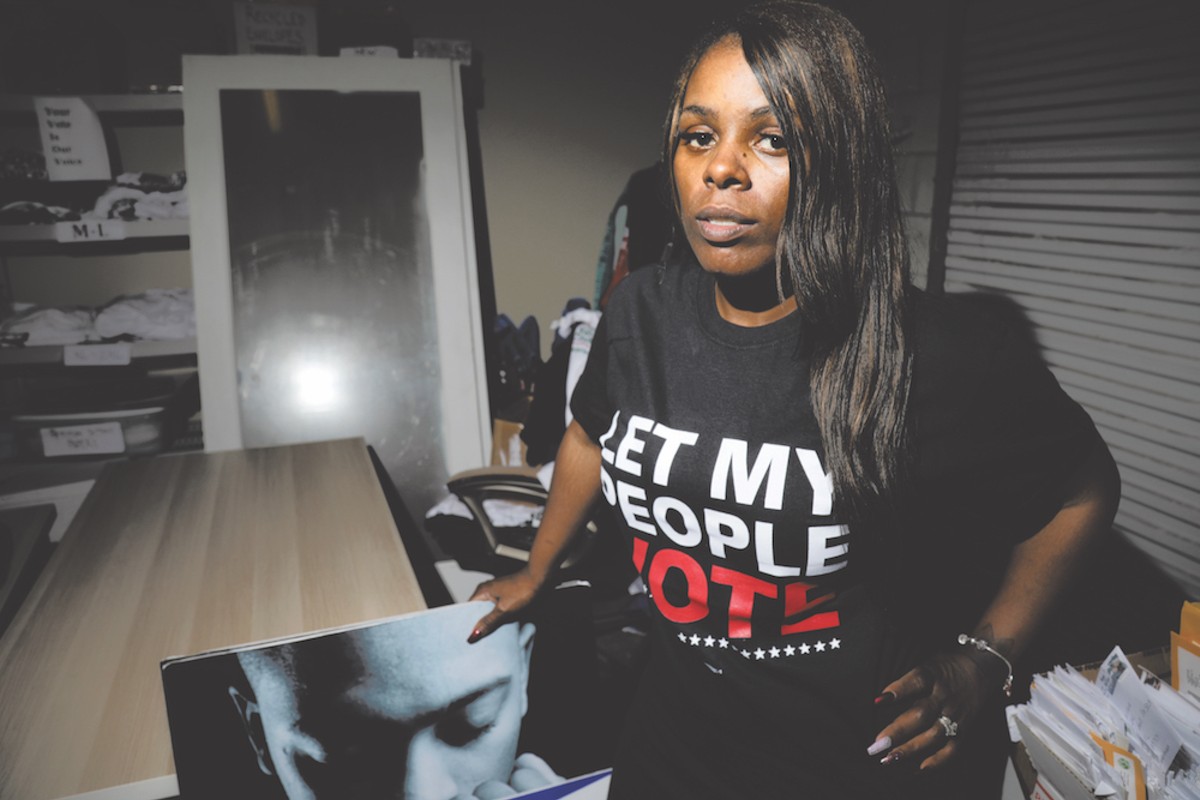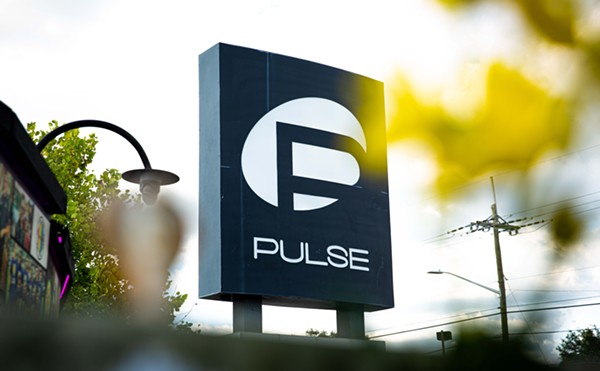Long before Jessica Younts sat in a classroom working toward her law degree, she spent seven months in a federal prison camp. At the age of 20, the New Yorker boarded a plane with someone carrying cocaine. A flight turned into a federal charge of conspiracy to possess cocaine, and when offered a plea deal, Younts accepted. The 39-year-old thinks back to the situation with regret and a tone of sad irony. "I tell everybody, 'My sentence didn't begin until I finished my prison sentence,'" she says.
Younts moved to Florida and, in 2008, was admitted to law school. Upon starting the program, she joined thousands of formerly convicted felons petitioning the state's Office of Executive Clemency to have their civil rights restored. It's the only legal path in Florida for ex-felons to regain the legal right to vote again, serve on a jury, sit a bar exam, hold public office or carry a firearm, among other things
It's also a lengthy, tedious process that requires all of the following: completing one's sentence for one's felony conviction, paying in full any restitution owed to victims and having no pending criminal charges; waiting the mandatory period after those conditions are met (either five or seven years, depending on the offense); filling out and submitting the necessary paperwork, including a 13-page clemency application that asks questions ranging from the name of one's church and denomination to one's health and education; receiving notice of restoration by mail; and being solicited to travel to the Office of Executive Clemency in Tallahassee to go before a clemency board comprised of the governor, the attorney general, the chief financial officer and the Commissioner of Agriculture.
The process can take more than a decade.
Younts applied for clemency during Gov. Charlie Crist's administration, which had issued an order automatically restoring rights. But her case became part of a large backlog. She graduated from law school, but it wasn't until 2013 that her case was given attention – this time, under a new administration. Younts traveled to the State Capitol and stood before Gov. Rick Scott himself, and his clemency board.
The clemency board restored her rights that day, opening the door for her to finally take the state bar exam and vote. But Younts was one of just a few to receive a favorable decision.
"Where I should've been happy, I left crying," she remembers. "It was just horrible to watch them basically belittle people in front of a whole audience and judge them – like, re-judge them."
An estimated 1.68 million Floridians are formerly convicted felons without civil rights, including the ability to vote.
Since Scott took office in 2011, his clemency board has reviewed more than 29,611 cases and restored voting rights to less than 3,000.
A federal judge ruled on Feb. 1 that Florida's system of civil rights restoration is unconstitutional. U.S. District Judge Mark Walker, in a 43-page order, sharply criticized the unfettered discretion the governor has in the decision-making process. "To vote again, disenfranchised citizens must kowtow before a panel of high-level government officials over which Florida's governor has absolute veto authority," he wrote. "No standards guide the panel. Its members alone must be satisfied that these citizens deserve restoration."
Walker also found the lack of timeliness in administering clemency unconstitutional. He noted the board "may defer restoration of rights for years or forever."
"Indefinite can-kicking is not some Floridian fairy tale like a line-less Space Mountain," he wrote.
The Governor's Office responded in a statement: "The discretion of the clemency board over the restoration of felons' rights in Florida has been in place for decades and overseen by multiple governors. The process is outlined in Florida's Constitution, and [this] ruling departs from precedent set by the United States Supreme Court."
The office pledged to defend the clemency tradition in court, an appeals process that could take months.
To understand Florida's decades-old clemency process is to understand U.S. history, particularly the post-Civil War and Reconstruction era. That's when the law and measures like it began appearing across the South. Many legal historians and criminal justice reform advocates maintain that it was intentionally put in place in Florida and other parts of the South, to find ways to keep African-Americans under white establishment control even though slavery had been outlawed.
In an article for the Brennan Center for Justice titled "Racism and Felony Disenfranchisement: An Intertwined History," researcher Erin Kelley writes, "The Thirteenth Amendment carved out an exception allowing states to impose involuntary servitude on those who were convicted of crimes. Seeing an opportunity to sustain their crumbling economy, numerous Southern politicians quickly implemented new criminal laws that were [in writer Douglas Blackmon's words] 'essentially intended to criminalize black life.'"
The so-called Black Codes characterized many nonviolent, low-level offenses as felonies. "While white people accused of crimes often escaped punishment," Kelley adds, "black people were arrested and convicted," becoming cheap labor for Southern employers. The measures have since disproportionately kept African-Americans – many of whom have committed low-level offenses – disenfranchised for decades.
Similar laws remain on the books today in Iowa, Kentucky and Virginia. But according to The Sentencing Project, a D.C.-based voting rights advocacy group, Florida has the highest concentration of disenfranchised citizens in the country.
The federal ruling is a big shot in the arm for the Florida Rights Restoration Coalition's ballot initiative to automatically restore voting rights to formerly convicted felons in Florida. The volunteer-led group reached an unprecedented milestone last month by submitting the 766,200 verified petition signatures required for a constitutional amendment to appear on the November 2018 ballot.
"This constitutional provision offers the option that solves the issue," says attorney Jon Mills, who helped draft the proposal for the ballot initiative and represented it before the state Supreme Court. "It elevates the visibility and importance of this issue, and it shows now that the voters – the public – have a clear option."
Mills expects the process of addressing the federal ruling in court, with appeals, could go beyond the November 2018 midterms. But that legal battle would become moot if the constitutional amendment passes.
Last March, the Florida Rights Restoration Coalition reached its first goal by gathering the 68,000 petition signatures needed to trigger a review by the state Supreme Court of the constitutional amendment and its ballot language. It received unanimous approval.
After its state Supreme Court win, the coalition went into overdrive, soliciting thousands of volunteers and paid petition gatherers across the state to collect the signatures to meet the Florida Division of Elections' Feb. 1 deadline for constitutional amendments to appear on the 2018 ballot.
Howard Simon, executive director of Florida's American Civil Liberties Union, was part of a group that spent a year and a half researching and writing the ballot language.
"One of the reasons that this has become such an important movement and effort is because it's so important now to finally put the remnants of the Civil War behind us," he says. "We've got to drag Florida, kicking and screaming, into the modern era."



















